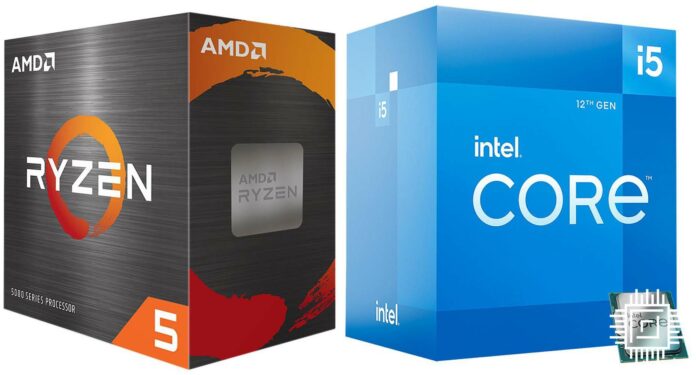The emergence of Intel’s 12th Gen Core processors, codenamed Alder Lake, has been a breath of fresh air. Using a hybrid architecture for the majority of chips, performance is impressive and pricing aggressive.
It’s this combination that has AMD worried. Before Alder Lake, AMD’s Ryzen 5000 Series had the upper hand and were the weapons of choice for a shiny, new build. As we mentioned in our Core i5-12400 review, “Intel’s aggressive pricing puts AMD into a real quandary as the 5600X represents the cheapest entry into the Zen 3 desktop club.”
So much so that pricing for popular Ryzen 5000 Series processors has been driven down, and we can verify this fact by looking at 60-day pricing for the Ryzen 7 5800X and Ryzen 5 5600X CPUs on PCPartpicker.

Here is the 60-day price graph for the Ryzen 7 5800X. Notice how the cost two months ago ranged from £325 through to £400 across 17 popular UK-based retailers. Now, though, most have locked into a £325 figure and, crucially, all have it in stock.
Ryzen 7 5800X has come under pressure from the nascent Intel 12th Gen Core i7 range, and the across-the-board price reduction is led by retailers, not AMD, as SEP is unchanged.

The situation is more pronounced for Ryzen 5 5600X. Serious pressure from the Core i5-12400, priced at below £200, puts the previous £270 5600X pricing into sharper relief. As AMD doesn’t have a cheaper, slower Ryzen 5000 Series CPU in its midst, the only sensible thing to do is to make it more attractive by dropping the asking fee.
This is exactly what has happened; the chip is widely available at £240 or so, though we feel it might have to come down some more to combat the burgeoning Intel threat.
It’s great to see healthy competition in the desktop space and, in contrast to graphics cards, plentiful stock of many models.
As pricing becomes more amenable at every point, who is your money on in early 2022 – Intel or AMD?


